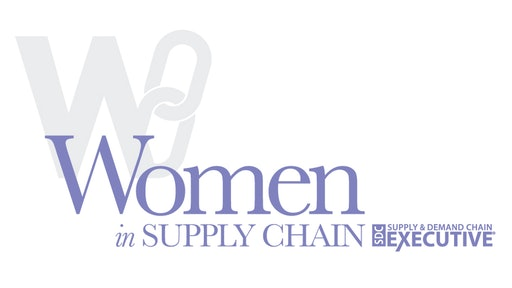It has been a tough year and half for the supply chain, as disruptions in the industry continue to come in waves, forcing many companies to step up in ways never seen before. To keep things moving, great leaders of the supply chain tapped into their ingenuity to bridge the many gaps that came to light.
And, many of those leaders are women, a segment of the supply chain that is not always thought of when it comes to the industry. According to a survey from Gartner, women now make up 41% of the supply chain workforce, up from 39% in 2020. The “essential” factor as a worker in the supply chain revealed many women continuing to work in the supply chain, while other industries were forced to stay home.
This past year, amidst a continued pandemic, several issues at major ports, civil unrest and other disruptions, these women created new technologies or helped their organizations embrace them, drove sustainability efforts forward, established great partnerships, advocated for their teams and employees and sought out creative ways to solve problems and keep employees safe throughout the pandemic. These women continue to pave the way for other young female leaders to become a part of an industry that matters.
As the world realizes that the supply chain is an essential job with great opportunity for a steady and successful career, Supply and Demand Chain Executive honors the women of the supply chain in the hopes that younger generations will see this as a place for females and all members of society.
One in particular is Melonee Wise, CEO of Fetch Robotics, who was named this year’s overall Woman in Supply Chain. Wise is a self-described robot ninja, has spent close to 20 years designing and building innovative and complex robotics systems and has amassed 13 patents.
“There’s been many, many studies that have shown that diverse teams have the best outcomes,” says Wise. “So, from a purely greedy perspective, a business should be striving for diversity and inclusion because it produces the best results. That is the foundational basis for why any business should be striving for inclusion,” Wise says.
Supply and Demand Chain Executive celebrates Wise and all of the women in its second annual Women in Supply Chain award, which honors female supply chain leaders and executives whose accomplishments, mentorship and examples set a foundation for women in all levels of a company’s supply chain network. Their accomplishments have made such a difference in the supply chain this year.
Congratulations to all of this year’s winners, which can be found here:
Below are some standouts:
Dawn Andre
EVP of Product Management
JAGGAER
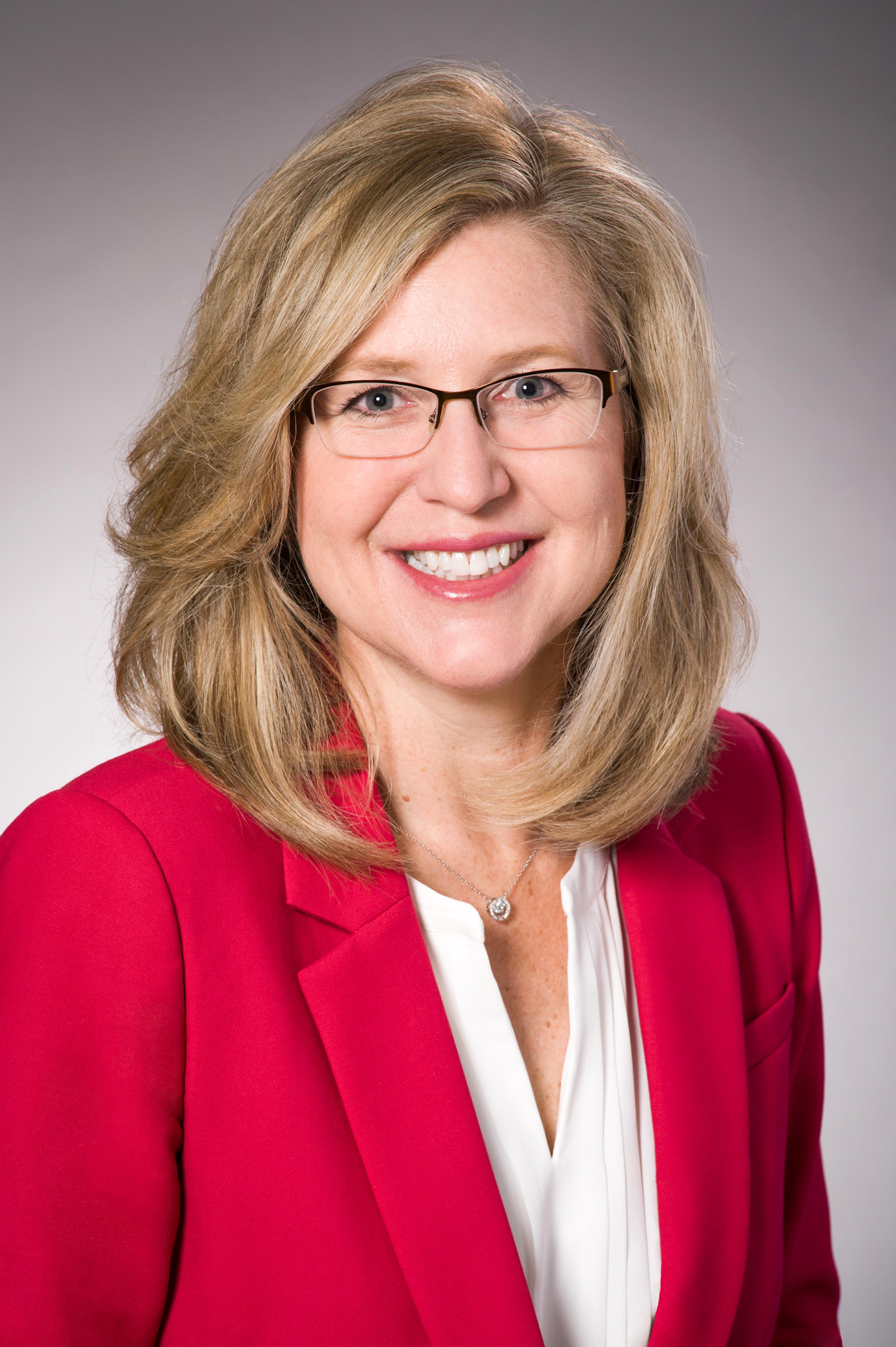 JAGGAER’s EVP of product management, Dawn Andre, sets a high precedent for all women in the supply chain industry. Ever since graduating from college with a degree in supply chain management, Andre has been the true definition of a strong, female leader in an industry so often exclusive of women. Her most profound contribution has been her efforts in developing JAGGAER’s Digital Mind project, which uses artificial intelligence, machine learning and similar technologies to automate complex manual processes. Through the use of Digital Mind, customers can increase user adoption in their organizations, which allows for consistency and better visibility into the end-to-end supply chain process. This product launch not only answered challenges brought up by the pandemic, but also continues to tie to JAGGAER values of empathy, humility and accountability. Andre also spearheaded the Human Equity Project, which aims to improve the issue of inequality within the industry. Andre has also mentored women seeking guidance in their career paths and plans to continue to encourage other women in this industry.
JAGGAER’s EVP of product management, Dawn Andre, sets a high precedent for all women in the supply chain industry. Ever since graduating from college with a degree in supply chain management, Andre has been the true definition of a strong, female leader in an industry so often exclusive of women. Her most profound contribution has been her efforts in developing JAGGAER’s Digital Mind project, which uses artificial intelligence, machine learning and similar technologies to automate complex manual processes. Through the use of Digital Mind, customers can increase user adoption in their organizations, which allows for consistency and better visibility into the end-to-end supply chain process. This product launch not only answered challenges brought up by the pandemic, but also continues to tie to JAGGAER values of empathy, humility and accountability. Andre also spearheaded the Human Equity Project, which aims to improve the issue of inequality within the industry. Andre has also mentored women seeking guidance in their career paths and plans to continue to encourage other women in this industry.
“Sponsors are critical to career development. They sit at the table where decisions are made, have early insights to initiatives and developing roles to understand your strengths,” Andre says. “Working from home did affect my world of work as a woman, for example, as a mom. There was a period of time not so long ago where if there was kid noise or anything going on in the background I would be mortified. I wouldn’t want people to question my dedication and focus. But, now it’s welcomed. We have people who are bringing their kids into meetings, and I think it makes it a little bit more of a kinder and gentler place. It certainly provides a level of empathy for your teammates (female or male) because you really never know what’s going on. As a woman in the technology industry, I have faced adversity in simply being a woman. I learned to overcome being a minority in such a male-dominated industry by making a practice of being firm and sitting at the table for a meeting, which was assumed to be for males only in the industry. There is a lot to be said about your physical presence and confidence to make that decision. As supply chain has become a more strategic department, women now get a seat at the table and are able to contribute to areas such as new product development and sales, where women historically did not have input. Supply is no longer an afterthought, but an integral part to the overall success of a company.”
Fiona Lowbridge
VP of Client Success
ALOM
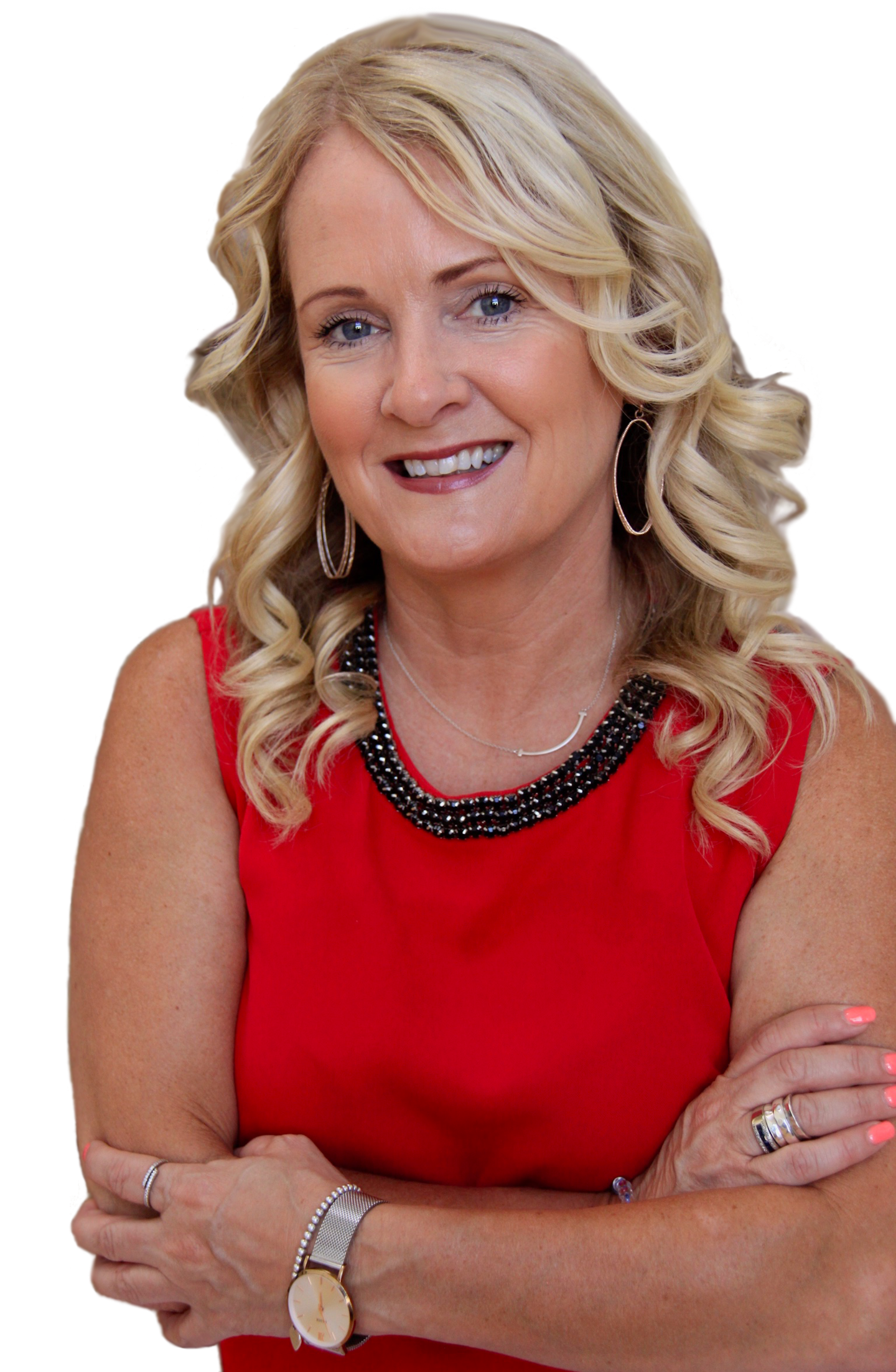 Fiona Lowbridge, VP of client success for ALOM, is a supply chain professional with 24 years of industry experience planning and implementing supply chain delivery programs globally, including building and maintaining supplier relationships and ensuring that all stakeholder objectives are being achieved. Since Fiona joined ALOM in 2018, company revenue has nearly doubled. Lowbridge, a recipient of Supply & Demand Chain Executive’s 2020 Pros to Know award, has embraced the use of advanced technology to provide data-driven visibility of supply chain status. In addition to having her personal “brand” associated to supply chain performance excellence, Lowbridge is a passionate advocate for environmental protection through responsible supply chain stewardship. Due to the sheer scale of operations and volume of materials involved in the supply chain industry, she views mitigating negative environmental impacts in supply chain as a personal responsibility and career legacy. Due to her advocacy in ALOM achieving ISO 14001 certification (environmental management) in 2020 and her continuous efforts to identify and address areas in ALOM operations, both internally and in support of client programs, ALOM launched a bold NetZero initiative to have a net zero carbon footprint across all operations by 2030. As a result, ALOM now purchases 80% of its electricity from renewable power generation sources and has reduced supplier delivery freight distances by 18%. Lowbridge was also a key contributor to help ALOM navigate the uncertainty and disruption of the COVID-19 pandemic and emerge as a more agile and resilient supply chain service provider.
Fiona Lowbridge, VP of client success for ALOM, is a supply chain professional with 24 years of industry experience planning and implementing supply chain delivery programs globally, including building and maintaining supplier relationships and ensuring that all stakeholder objectives are being achieved. Since Fiona joined ALOM in 2018, company revenue has nearly doubled. Lowbridge, a recipient of Supply & Demand Chain Executive’s 2020 Pros to Know award, has embraced the use of advanced technology to provide data-driven visibility of supply chain status. In addition to having her personal “brand” associated to supply chain performance excellence, Lowbridge is a passionate advocate for environmental protection through responsible supply chain stewardship. Due to the sheer scale of operations and volume of materials involved in the supply chain industry, she views mitigating negative environmental impacts in supply chain as a personal responsibility and career legacy. Due to her advocacy in ALOM achieving ISO 14001 certification (environmental management) in 2020 and her continuous efforts to identify and address areas in ALOM operations, both internally and in support of client programs, ALOM launched a bold NetZero initiative to have a net zero carbon footprint across all operations by 2030. As a result, ALOM now purchases 80% of its electricity from renewable power generation sources and has reduced supplier delivery freight distances by 18%. Lowbridge was also a key contributor to help ALOM navigate the uncertainty and disruption of the COVID-19 pandemic and emerge as a more agile and resilient supply chain service provider.
“I sit in a fun chair. On one hand I am responsible for ensuring ALOM customers receive the highest levels of service and operational performance value, so I often push the envelope to keep our customers happy giving a little more than perhaps necessary. On the other hand, I am responsible for ALOM operational profitability and business growth, so making concessions has to have a strategic upside. I have conversations daily with our customers and our internal account management and buyer teams. This gives me a unique perspective to how I see our customers view their key challenges. Whereas ALOM has a longer look toward the horizon to where we would like to see our business goals take us, our customers are currently more focused on short-term operational topics like freight delays, component shortages and COVID-driven border restrictions,” says Lowbridge. “The greatest challenge I have in supply chain though is having difficult conversations with customers or internal operations staff to inform them that the way they want something done, or are doing it, is not going to deliver the desired outcome. I believe companies around the world should be striving for gender parity as a highly visible proof point of overall corporate social responsibility. Supply chain as an industry is ideally positioned to achieve this goal while at the same time advancing the importance of diversity and inclusion. More specifically, I feel that businesses, coming out of a turbulent year both economically as a result of the pandemic and socially as a result of a divisive U.S. presidential election, Black Lives Matter and Me Too movements and environmentally as a result of climate change/extreme weather, that corporate social responsibility has risen to the forefront of boardroom agendas. For my part, I will continue to be an advocate for supplier diversity and promote the industry to young adults, both male and female, as an exciting, growing industry with good-paying, technology-driven career opportunities. But, to women specifically, I would add that the industry provides women with financial parity, a healthy work environment and career advancement based on performance and ability.”
Tami Strickland
Director of Sales, Key Accounts
ALOM
As director of sales, key accounts for ALOM, Tami Strickland solves complex supply chain challenges that achieve client goals for efficiency, service, quality and total ROI. She utilizes her 28 years of supply chain and manufacturing program implementation experience to work with department heads and suppliers to plan, engineer, price and present winning program strategies designed to provide care and comfort to cancer patients; diagnostic equipment to serve individuals with diabetes, DNA ancestry and medical genetic testing; materials for improving energy efficiency; and comfort of low-income individual and family homes/apartment. Strickland has had a direct role in winning and sustaining client program contracts now totaling over $350 million in revenue, and has planned, negotiated and closed contracts with leading global brands. Strickland engaged with three of the leading COVID-19 test kit manufacturers in the country to rapidly plan, configure production lines, onboard and ship high volumes of test kits to medical facilities nationwide. Her engagement included ensuring a long list of FDA and other medical product compliance requirements were met and signed off prior to shipping. Her industry insider knowledge and medical supply chain expertise allowed ALOM to rapidly respond and provide this critical medical industry support during a time of extreme need for the country. Through Strickland’s advocacy and the efforts of ALOM’s supply base team, the company’s diverse supplier spend reached 35% in 2020.
“It’s funny to me that I really don’t think in terms of what I am working to achieve for the industry. My goals are specific to achieving the performance objectives of the programs I design and deliver. My goals for these programs and clients are simple; ensure end-user safety while providing 100% on-time performance with six sigma quality levels. What I ask myself is, how can I push the envelope to incorporate new technology, advancements in automation, production processes, supplier expertise, material improvements and sustainability to further optimize supply chain execution for a specific program? What I have found is that by focusing on the needs of our clients and looking at this as a microcosm of the industry, the programs I have helped plan and implement have led toward incrementally advancing the industry,” Strickland says. “For example, in the area of e-commerce fulfillment. I helped design and implement one of the first B2B order portals for an ALOM client that included an online shopping cart, payment processing/billing administration and delivery scheduler (integrated with carrier tracking information). Similarly, our automated order routing system that routes orders to the fulfillment center nearest the end-user delivery destination saves on freight, improves sustainability and allows ALOM to compete more effectively by ensuring 48 hour or less order fulfillment times to 85% of addresses in the continental U.S. As a woman in supply chain, I have had my share of moments where I felt I was not being taken seriously when presenting to a roomful of prospective client representatives. This mostly occurred early on in my career. I call these experiences ‘learning moments.’ I learned to not let it bother me and they learned their gender stereotype was wrong. In the end, what I love about supply chain is it is all about performance. Industry professionals across all genders simply want a problem solved and respect ingenuity and innovation to develop and deliver a program successfully and cost-effectively. I don’t know if there is any gender-based differentiation on how an individual can help achieve these strategies. Because ALOM is a woman-owned business, it makes me proud, as a woman, to contribute toward the company’s success as a proof point of how a well-run, socially responsible global company can operate. My experience has only been to work in an organization that values diversity and inclusion, so I guess it just comes naturally to me that I consider this “normal”; although I realize that is not always the case at many workplaces or for many individuals. This is why I have focused much of my career in medical device manufacturing and fulfillment program support. I see my role, as a woman, in supporting businesses that demonstrate a commitment to diversity, inclusion and environmental sustainability because those issues are important to me and they each are integrated with supply chain operations.”
Shimon Gowda
Manager, Supply Chain Design Practice
Chainalytics
 Shimon Gowda is a supply chain professional with over five years of experience within the core supply chain industry. Coming from a supply chain consulting background, she has worked with a diverse clientele base and solved some very intriguing and challenging supply chain problems right from the start of her career. She maintains experience designing warehouses, auditing them for best practices, rebalancing inventory, streamlining supply demand forecasting and designing and optimizing end-to-end supply chain network for companies. As manager, supply chain design practice for Chainalytics, Gowda’s primary focus is designing and strategizing distribution networks for several mid- and large-sized companies. Plus, Gowda is a “supply chain digital twin” enthusiast and a firm believer of how this can largely impact companies to drive toward circular economy. Over the past year, Gowda has driven key project initiatives to improve transit time to end customers by utilizing the fastest, cheapest and most efficient route. She was also a part of Rutgers University’s Supply Chain Resiliency auditing program, which was structured around how the pandemic disrupted various areas of supply chain. Being a firm supporter and believer in the whole ado around the digitalization of the data, especially in the supply chain field, Gowda acts on it rather than only talks about it. For example, one of her pro-bono projects is building an inventory management application through a no-code application, AppGyver, to automate the process and build a full-fledged inventory model.
Shimon Gowda is a supply chain professional with over five years of experience within the core supply chain industry. Coming from a supply chain consulting background, she has worked with a diverse clientele base and solved some very intriguing and challenging supply chain problems right from the start of her career. She maintains experience designing warehouses, auditing them for best practices, rebalancing inventory, streamlining supply demand forecasting and designing and optimizing end-to-end supply chain network for companies. As manager, supply chain design practice for Chainalytics, Gowda’s primary focus is designing and strategizing distribution networks for several mid- and large-sized companies. Plus, Gowda is a “supply chain digital twin” enthusiast and a firm believer of how this can largely impact companies to drive toward circular economy. Over the past year, Gowda has driven key project initiatives to improve transit time to end customers by utilizing the fastest, cheapest and most efficient route. She was also a part of Rutgers University’s Supply Chain Resiliency auditing program, which was structured around how the pandemic disrupted various areas of supply chain. Being a firm supporter and believer in the whole ado around the digitalization of the data, especially in the supply chain field, Gowda acts on it rather than only talks about it. For example, one of her pro-bono projects is building an inventory management application through a no-code application, AppGyver, to automate the process and build a full-fledged inventory model.
“One of the most noticeable technological advancement that we would start seeing over the next decade is that more companies will invest in establishing a digital twin of their supply chain ecosystem to create a more resilient and sustainable supply chain. The ultimate benefit is this would in turn support circular economy by reducing obsolete SKUs, optimizing space utilization and increasing route efficiency, which thereby reduces carbon footprint and provides end-to-end visibility. I also want to drive more small businesses to begin their digitization journey as soon as possible as there is no better time to start then now,” says Gowda. “Apart from the fact that there is a huge disconnect in the visibility and seamless integration of data between different systems and platforms, there is immense requirement for teams to work collaboratively rather than looking for only self-constricted growth. I believe that success is a team effort, and we should be appreciative of each other’s effort and see the growth of others as a positive thing. Supply chain professionals are natural cross-functional leaders. Women are natural multitaskers, have great interpersonal and communication skills and are more compassionate by nature. Compassion is an extremely important trait now more than ever, as we are headed toward the brink of extinction if we continue at this rate without being considerate of what impact our actions might have on other species and our planet in turn.
Anna Karlsdottir
Chief Quality Officer
Controlant
Anna Karlsdottir started her tenure with Controlant at the end of 2015 as a quality manager focusing on supply chain customers. After five months in that position, she added the customer service department to her role. In 2016, Karlsdottir built up the quality management system from scratch to address processes affecting Controlant’s supply chain customers. Then COVID-19 hit, forcing Karlsdottir and her team to re-evaluate who to secure data integrity and security for all customers. Karlsdottir consistently led her department in a fast-paced startup environment with a global pandemic raging in the background. And, because of her strict quality standards, Controlant was selected as the technology partner for a primary COVID-19 vaccine manufacturer. With Karlsdottir at the helm, Controlant’s customers gained accurate dashboard analytics and insights into their supply chain, including origins, destinations and routes, and received insight into improved supply chain continuity, visibility and agility.
“We’ve been able to grow so fast because of our commitment to quality in the supply chain,” says Karlsdottir. “Because we have a solid quality management system, the entire company has been able to scale up and grow very quickly. Considering how women’s roles can positively impact the supply chain, equality and diversity are important as they bring out more perspectives and capabilities on a team. It allows for innovative solutions to solve unique problems. We all come to the table with different backgrounds and experiences. I want all voices to be heard and valued.”
Kaitlin Pollara
Business Development Manager
Converge
 Kaitlin Pollara serves as business development manager for Converge, an Arrow company, running the company’s cloud and procurement businesses in the United States and making an impact across several key areas. For example, Pollara pioneered a new way of collaborating with Converge’s global teams, especially building closer ties with the APAC region, and rewriting traditional revenue share agreements to be more equitable. Pollara also takes an active role in developing new talent, giving time to female colleagues and leading a team of tenured procurement professionals and supporting them in strategic vendor engagements. Pollara also contributed to the success of divisions outside her own, by using her network to channel opportunities to Arrow teams where their capabilities can best help the customer. She also recognized the importance of a circular supply chain and worked to rebuild Converge’s supply chain sustainability offerings, bringing attention to operations, machinery, manpower, testing software and remarketing product in a sustainable way. Her goal is to minimize disruption and allow customers to focus on their core business, collaborate to bring new improvements to the industry in the areas of market intelligence and supply chain sustainability and pass it forward, paving the way for a new generation, especially female talent, to thrive in the open market.
Kaitlin Pollara serves as business development manager for Converge, an Arrow company, running the company’s cloud and procurement businesses in the United States and making an impact across several key areas. For example, Pollara pioneered a new way of collaborating with Converge’s global teams, especially building closer ties with the APAC region, and rewriting traditional revenue share agreements to be more equitable. Pollara also takes an active role in developing new talent, giving time to female colleagues and leading a team of tenured procurement professionals and supporting them in strategic vendor engagements. Pollara also contributed to the success of divisions outside her own, by using her network to channel opportunities to Arrow teams where their capabilities can best help the customer. She also recognized the importance of a circular supply chain and worked to rebuild Converge’s supply chain sustainability offerings, bringing attention to operations, machinery, manpower, testing software and remarketing product in a sustainable way. Her goal is to minimize disruption and allow customers to focus on their core business, collaborate to bring new improvements to the industry in the areas of market intelligence and supply chain sustainability and pass it forward, paving the way for a new generation, especially female talent, to thrive in the open market.
“I am part of a business that is divested and returned to work for Converge. With a smaller team of specialist support and much reduced resources, a service business was rebuilt over a one-year period that retained the largest partners from the old business and added another key marquee name. Today, that services business has doubled in size from its original amount, with considerably lower expense. Market share has increased in each of our top partners,” says Pollara. “Supply chain needs to be elevated to a strategic role at C level within organizations, and collaboration across supply chains must be encouraged to face challenges such as supply chain resilience and security, which affect us all.”
Abigail Nawrocki
Regional GM, Southeast
Deliverr
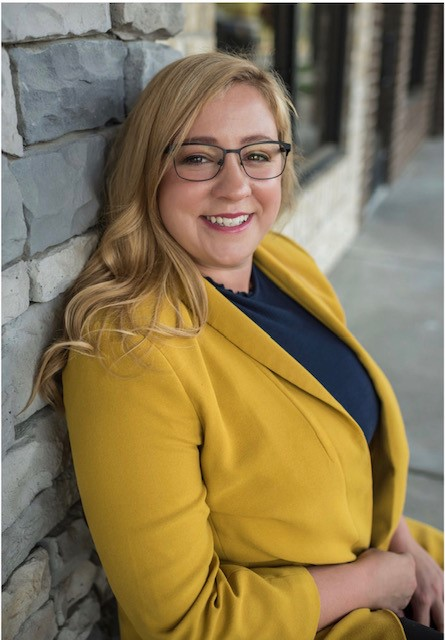 For the past 6 years, Abigail Nawrocki has worked her way up from operations supervisor to director of operations for companies such as DHL, Radial and Geodis to support and build distribution operations for clients like Zara, Uniqlo, SKIMS and Apple. Most recently she joined Deliverr as regional general manager, Southeast. Previously, she led a team of 1,000-plus hourly employees and 30-plus managers at Geodis, where she developed culture, engagement, continuous improvement and a high-quality, profitable operation for clients. Nawrocki also strives to achieve a strong connection between the hourly employee and corporate executives by revamping workspaces, listening to employees’ needs and desires, offering flexible working hours, supporting employees with resources for all walks of life and more.
For the past 6 years, Abigail Nawrocki has worked her way up from operations supervisor to director of operations for companies such as DHL, Radial and Geodis to support and build distribution operations for clients like Zara, Uniqlo, SKIMS and Apple. Most recently she joined Deliverr as regional general manager, Southeast. Previously, she led a team of 1,000-plus hourly employees and 30-plus managers at Geodis, where she developed culture, engagement, continuous improvement and a high-quality, profitable operation for clients. Nawrocki also strives to achieve a strong connection between the hourly employee and corporate executives by revamping workspaces, listening to employees’ needs and desires, offering flexible working hours, supporting employees with resources for all walks of life and more.
“It’s March 19, 2020, and the likes of higher ups from Uniqlo, Zara, Apple, etc. are calling, all asking the same thing, “Abby, what’s the plan?” When COVID-19 cloaked the U.S. economy, it wasn’t new business ideas and entrepreneurs that saved us; it was supply chain, more specifically e-commerce, it was me and my team,” Nawrocki says. “As the youngest director of operations for Apple’s distribution centers, it was my teams and I who navigated change through leadership and innovation. On March 20, I stood in our 600,000-square-foot Uniqlo warehouse and spoke to my team of hundreds of employees, promising safe working environments and prepping them for the 70-plus-hour work weeks ahead. When the world is the one to change the game, my team and I are the one to ensure we all still win.”
Alicemarie Geoffrion
VP, Packaging Operations
DHL Supply Chain
As DHL Supply Chain’s first dedicated North American VP of packaging operations, Alicemarie Geoffrion is the consummate professional, committed to continuous innovation, driving business results for customers and shaping the future of the supply chain industry. Geoffrion oversees a team of central packaging resources and is accountable for the success of 35-plus North American packaging sites, which include more than 3,000 associates. Before assuming her current role, she helped develop the packaging strategy for the business. Then, once she became VP of packaging operations, she was charged with driving results, achieving a CAGR of 12% from 2016-2020. Through her work as a member of the World Economic Forum, she engages with global leaders across multiple industries to discuss and address how to attract and retain the manufacturing talent of the future, enabling greater innovation and progress for the industry. In her role, Geoffrion is focused on actively shaping the future of packaging. She is working to implement predictive analytics to help customers improve forecasting and production planning. Using this technology, Geoffrion and her team can define better and more strategic buying strategies for packaging materials and work with customers to better understand how impacts upstream affect activities downstream to better predict outcomes.
“I believe there are several challenges facing customers, including labor availability, pressure to be more sustainable across all aspects of business and solving the complexity of forecasting. I believe that championing a culture of continuous innovation can address many of these barriers for customers. As a champion of innovation, I’m continuously looking for new ways to integrate emerging technologies into packaging operations, not only to provide greater efficiency and flexibility for DHL Supply Chain customers, but to also provide a more meaningful and enjoyable work environment for associates who appreciate opportunities to leverage technology in their daily work,” Geoffrion says. “But, there is more work to do. A lot can be achieved through greater collaboration at a higher level. I am focused on providing customers with end-to-end pack solutions that are agile and flexible. For me, it is, and always has been, about continuous innovation.”
Denise Mager
VP, Operations Life Sciences and Healthcare
DHL Supply Chain, North America
In her 25 years with DHL Supply Chain, Denise Mager has gained unparalleled expertise and exposure throughout the supply chain, from her start as a transportation/inventory manager at a warehouse to her current role as VP, operations, life sciences and healthcare (LSH). In her current role, which she took on in March 2021, Mager maintains responsibility over more than 500 North American associates and oversees one of the top LSH accounts in North America. Mager and her team also work with customers to ensure they can flex capacity to meet demand even during a labor shortage, through the use of robotics, artificial intelligence and digitalization. For example, one of her sites has been actively involved in a proof of concept for autonomous unloaders. Based on the success of the proof of concept, the site will launch two unloaders later in 2021. Mager also focuses on continuous learning and self-improvement. Instead of a 5- or 10-year plan, she instead chooses to focus on learning something new every day and finding fulfillment in her day-to-day work. She wants to continue to engage in innovation both internally at DHL Supply Chain and with customers, drawing on her wealth of experience in a variety of roles. Last year, her team implemented the Day in the Life/Week in the Life process, which helped DHL Supply Chain deliver a solid startup and resulted in on-time and on-budget projects and happy customers. The Day in the Life/Week in the Life process allows all processes to be thoroughly tested before they go live, allowing for a smooth and seamless rollout for customers.
“When I first started in supply chain operations 25 years ago as a manager at a warehouse, I was one of the only women in management. Although it was sometimes intimidating or awkward to be the only woman in a meeting, I haven’t ever experienced a disadvantage or discrimination based on my gender. During those moments of awkwardness, I always looked for ways to connect and find common ground with the others in the room. I have succeeded in the industry by intentionally building relationships and finding commonalities with those around me,” Mager says. “For me, women bring a different emotional quotient to the supply chain workplace, allowing for deeper discussions and alternative perspectives to solving problems. Women can bring the thought leadership needed to help the business innovate and to challenge old ways of thinking. I see women in leadership as providing valuable and unique perspectives that advance the alignment of supply chain within a customer’s business.”
Elaine Darr
VP, Operations Excellence, North America
DHL Supply Chain
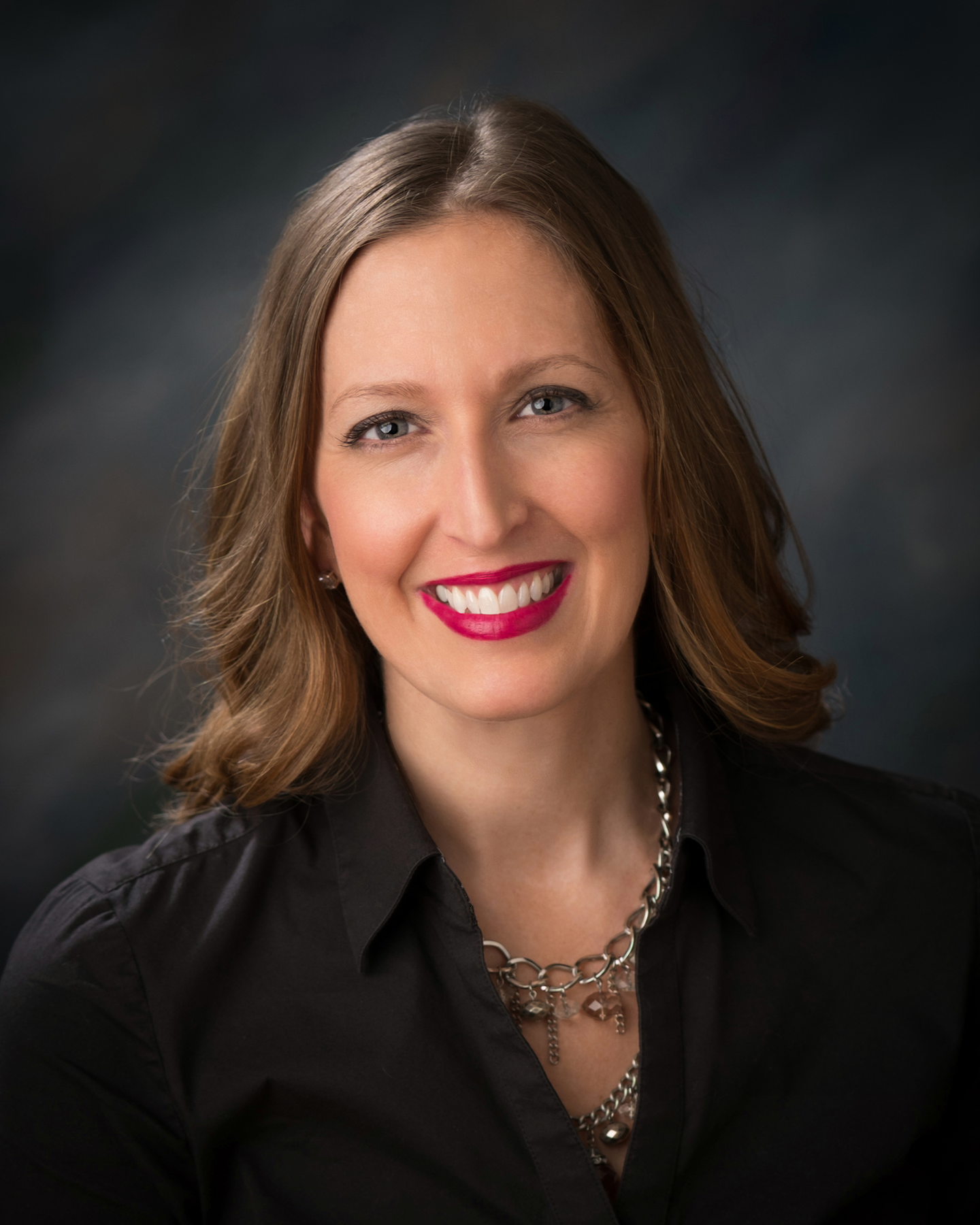 Though she may not have started her career in the supply chain industry, Elaine Darr is an example of how tenacity and a desire to learn can translate into a successful supply chain career. In 2011, Elaine Darr joined DHL Supply Chain’s North American operations as senior legal counsel, global business services, and has since held various leadership roles, including VP, commercial contract management and economic incentives; VP, health, safety, environment and business continuity; VP of operations; and was recently promoted to her current role of VP, operations excellence, North America, where she leads a team of more than 120 people and oversees the North American operations and development functions at DHL Supply Chain. Her purview includes performance management, sustainability and digitalization across DHL Supply Chain’s North America business, in addition to quality, safety, security, and business continuity – all working to ensure operational excellence on behalf of the company’s customers. Keeping innovation top of mind, Darr and her team are continuously tasked with identifying creative solutions to fill talent gaps by adopting technology. In addition to leading teams through the purchase of renewable energy certificates in leased warehouses and converting equipment to EV technology, Darr has played a critical role in helping DHL Supply Chain customers reduce emissions related to transportation. And, just as the company has invested in her personal growth and development, Darr seeks to invest in her colleagues by continuously challenging the status quo and relying on
Though she may not have started her career in the supply chain industry, Elaine Darr is an example of how tenacity and a desire to learn can translate into a successful supply chain career. In 2011, Elaine Darr joined DHL Supply Chain’s North American operations as senior legal counsel, global business services, and has since held various leadership roles, including VP, commercial contract management and economic incentives; VP, health, safety, environment and business continuity; VP of operations; and was recently promoted to her current role of VP, operations excellence, North America, where she leads a team of more than 120 people and oversees the North American operations and development functions at DHL Supply Chain. Her purview includes performance management, sustainability and digitalization across DHL Supply Chain’s North America business, in addition to quality, safety, security, and business continuity – all working to ensure operational excellence on behalf of the company’s customers. Keeping innovation top of mind, Darr and her team are continuously tasked with identifying creative solutions to fill talent gaps by adopting technology. In addition to leading teams through the purchase of renewable energy certificates in leased warehouses and converting equipment to EV technology, Darr has played a critical role in helping DHL Supply Chain customers reduce emissions related to transportation. And, just as the company has invested in her personal growth and development, Darr seeks to invest in her colleagues by continuously challenging the status quo and relying on
